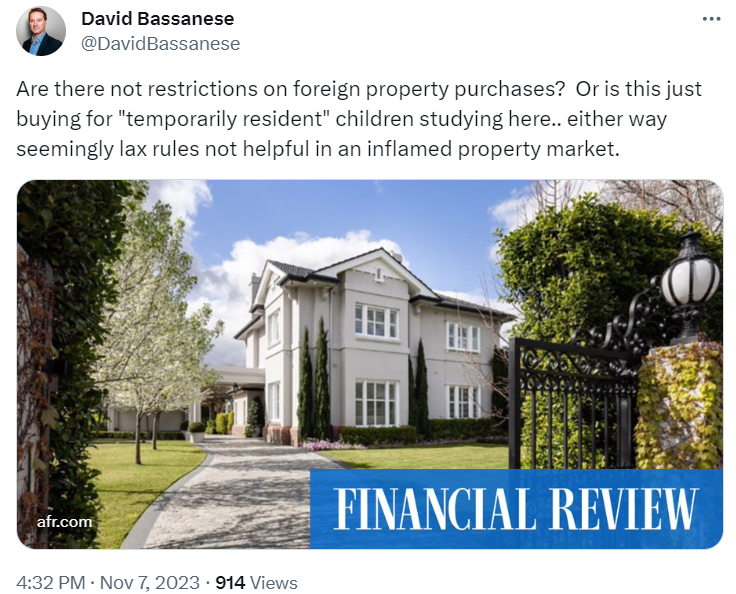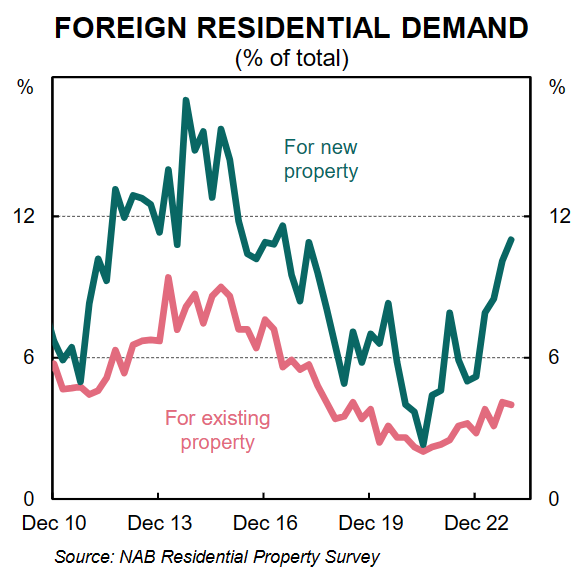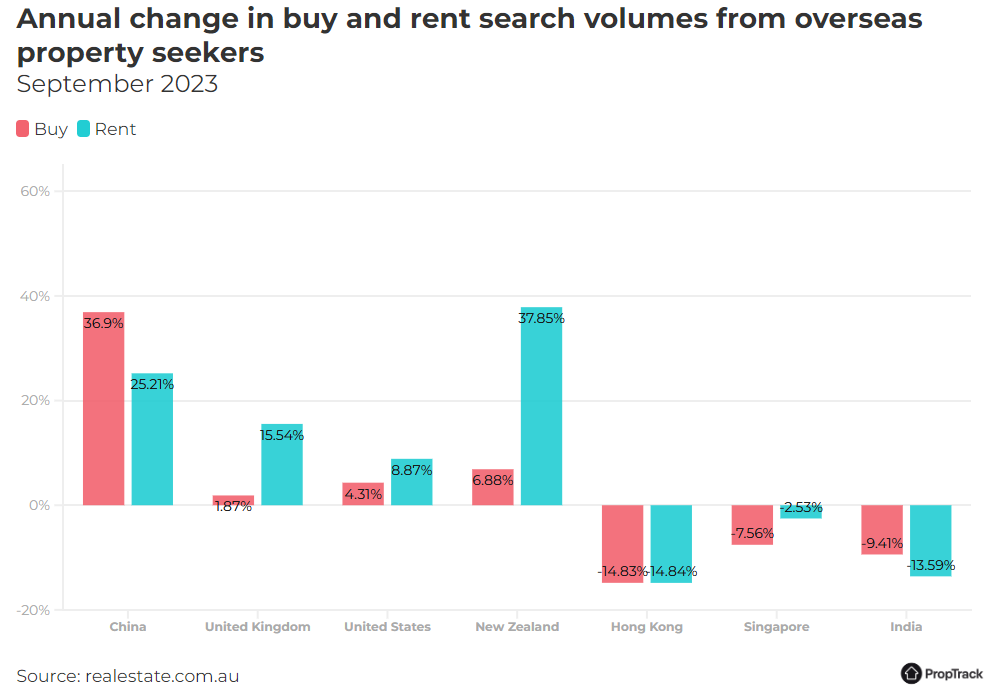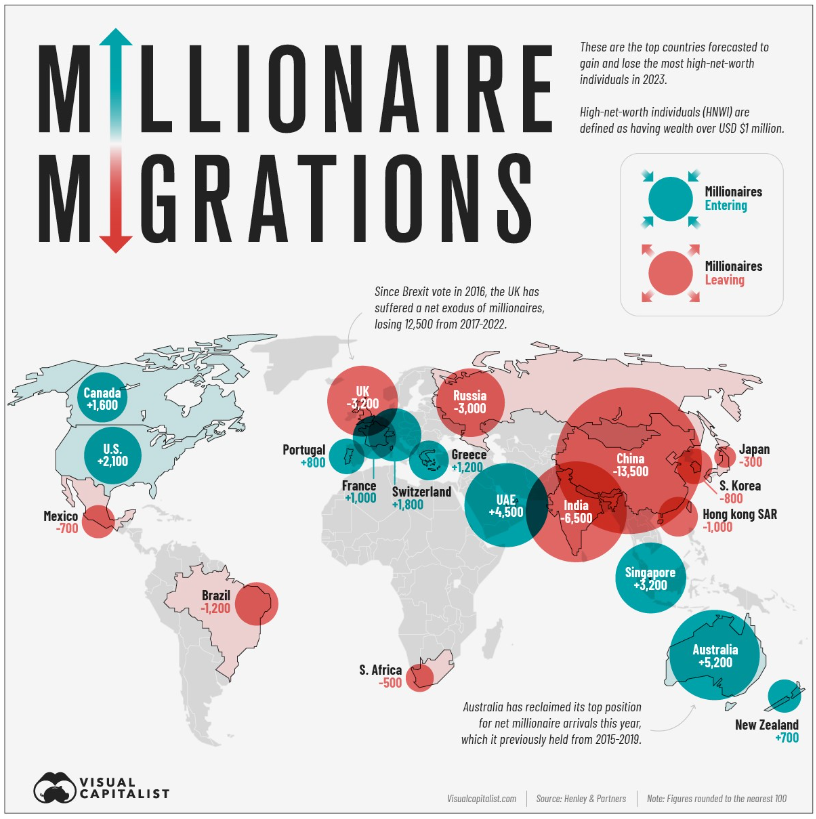Late last year, BetaShares chief economist, David Bassanese, asked why Australia doesn’t have tighter restrictions on foreigners buying local homes:

The article that Bassanese referred to stated:
“Wealthy Chinese buyers are taking private jets to Melbourne to purchase mansions in Toorak – the city’s most expensive suburb – on the spot, says Toorak buyer’s agent Alex Bragilevsky”.
“Mr Bragilevsky… says 90% of the work he now does is for Chinese buyers”.
“I’ve facilitated $135 million of real estate deals [in Toorak] in the past six months”, he told The AFR. “All these buyers were Chinese”.
“The Chinese will pay over the odds for single dwellings”, he said.
On Monday, The AFR published an article about a Chinese FIRB-approved temporary migrant that outbid locals by $1 million for a Miami-style mansion in Mermaid Waters:

The interview with a Gold Coast real estate agent was enlightening and suggested that Chinese buyer demand has ramped up:
“This was a FIRB buyer [a non-permanent resident required to get Foreign Investment Review Board permission to buy a new home]”, the agent told The AFR.
“I have noticed in the last six months the influx of Chinese buyers at auctions and buying has been as high it was pre-COVID. They’re definitely getting access to cash and repatriating it to Australia”.
“They seem to be getting it out more easily than I originally thought. I thought it was lot more complicated. There are multiple cash buyers we’re seeing. I’m only talking about the luxury end of the market”, the agent said.
It is not only the prestige market that overseas buyers are targeting.
Recent data from real estate professionals, Juwai IQI, PropTrack, and the Australian Treasury show growing overseas interest in Australian homes.
NAB’s Residential Property Survey of real estate insiders showed that the proportion of Australian properties sold to overseas buyers has climbed significantly since the country’s borders were opened in late 2021:

Overseas searches on realestate.com.au, reported by PropTrack, likewise showed that foreign buyer interest in Australian housing was at all-time highs, led by China:

Both surveys followed in the wake of property portal Juwai IQI, which ranked Australia as the top destination for Chinese buyers.
Chinese buyer inquiries through Juwai increased 158% in the third quarter of 2023, marking the second consecutive quarter of double-digit growth.
Juwai spokesperson David Platter said the firm had “been working with a lot of Chinese ever since the borders opened. Presumably as flights continue to increase we will see buying increase”.
“These people are upper-middle-class and wealthy from a Chinese standpoint. They are buying townhouses, houses and large apartments at $1.5 million, $2 million, $2.5 million and up”.
Late last year, the Australian Treasury reported that foreign buyer approvals increased by 40% in the latest quarter versus the previous year, led by buyers from mainland China and Hong Kong.
Finally, a recent map by The Visual Capitalist depicting the migration patterns of the world’s millionaires showed that Australia will have the largest influx of millionaire migrants (+5,200), while China will face the greatest loss (-13,500).

Many of these migrant millionaires will inevitably make their way to Australia.
Who can blame them when Australia has the weakest anti-money laundering regulations in the world? We are also running the most aggressive immigration program in our history.
As a result, Australian real estate has become a magnet for overseas buyers, especially cashed-up Chinese.
Unfortunately, Australia’s housing market is no longer for Australians.

